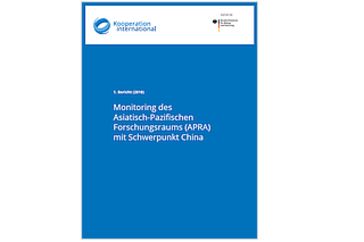The publication contains extensive evaluations of various research and education indicators – including editions, (co-) publications and (co-) patents – in Asian countries. The main topics of this year's report are quantum research, medical technology and talent mobility, with an additional focus on the Chinese research and education system.
A follow-up report is due to be published in early 2020.
The Asia-Pacific region accounts for about half of the world's population and is developing rapidly: investment in research and development is increasing and the number of students is growing, as is that of publications and patent applications. Numerous indicators confirm the current and increasing importance of the region.
The Federal Ministry of Education and Research (BMBF) recognises the relevance of research and innovation policy developments in this key region and aims to understand it in detail in order to be able to adequately coordinate its own cooperation measures. The BMBF has initiated the Performance Monitoring of the Asia-Pacific Research Area ('APRA-PM') in 2018. Its goal is to obtain an evidence base for a strategic cooperation development in particular with China but also with numerous other Asian countries. Initially scheduled for two years, the contract will be implemented by a consortium of the Fraunhofer Institute for Systems and Innovation Research ISI, the Leibniz Institute for Global and Area Studies (GIGA) and the German Academic Exchange Service (DAAD).
Following a stakeholder workshop last winter, the first comprehensive report has now been published. A follow-up report is planned for early 2020.
This year's report deals with the main topics of quantum research, medical technology and talent mobility. It also contains an extensive chapter on 'China's Reorientation of the Science, Technology and Innovation System'.
The analyses are based on large data sets of various research and education indicators, such as editions, (co-) publications, (co-) patents. Individual datasheets are available for all countries covered in the report. The data collected and processed as a basis for this publication may be made available to third parties for scientific use.
The report covers the following countries: Australia, China, India, Indonesia, Japan, Malaysia, New Zealand, Philippines, Singapore, South Korea, Thailand, and Vietnam. In addition, comparative data on Germany and various benchmark countries such as France, the United Kingdom and the USA are included.








